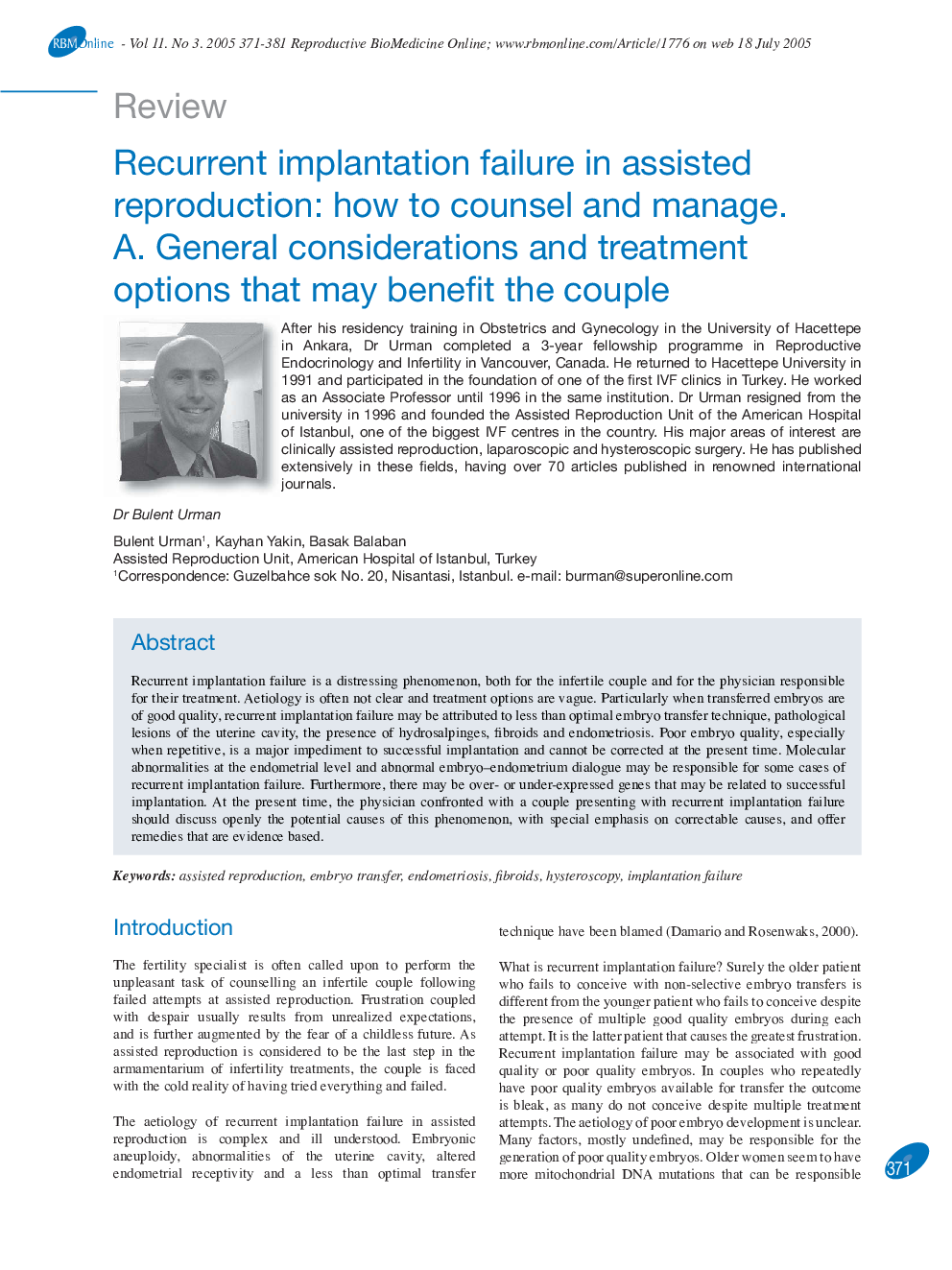| Article ID | Journal | Published Year | Pages | File Type |
|---|---|---|---|---|
| 9334695 | Reproductive BioMedicine Online | 2005 | 11 Pages |
Abstract
Recurrent implantation failure is a distressing phenomenon, both for the infertile couple and for the physician responsible for their treatment. Aetiology is often not clear and treatment options are vague. Particularly when transferred embryos are of good quality, recurrent implantation failure may be attributed to less than optimal embryo transfer technique, pathological lesions of the uterine cavity, the presence of hydrosalpinges, fibroids and endometriosis. Poor embryo quality, especially when repetitive, is a major impediment to successful implantation and cannot be corrected at the present time. Molecular abnormalities at the endometrial level and abnormal embryo-endometrium dialogue may be responsible for some cases of recurrent implantation failure. Furthermore, there may be over- or under-expressed genes that may be related to successful implantation. At the present time, the physician confronted with a couple presenting with recurrent implantation failure should discuss openly the potential causes of this phenomenon, with special emphasis on correctable causes, and offer remedies that are evidence based.
Related Topics
Health Sciences
Medicine and Dentistry
Obstetrics, Gynecology and Women's Health
Authors
Bulent Urman, Kayhan Yakin, Basak Balaban,
